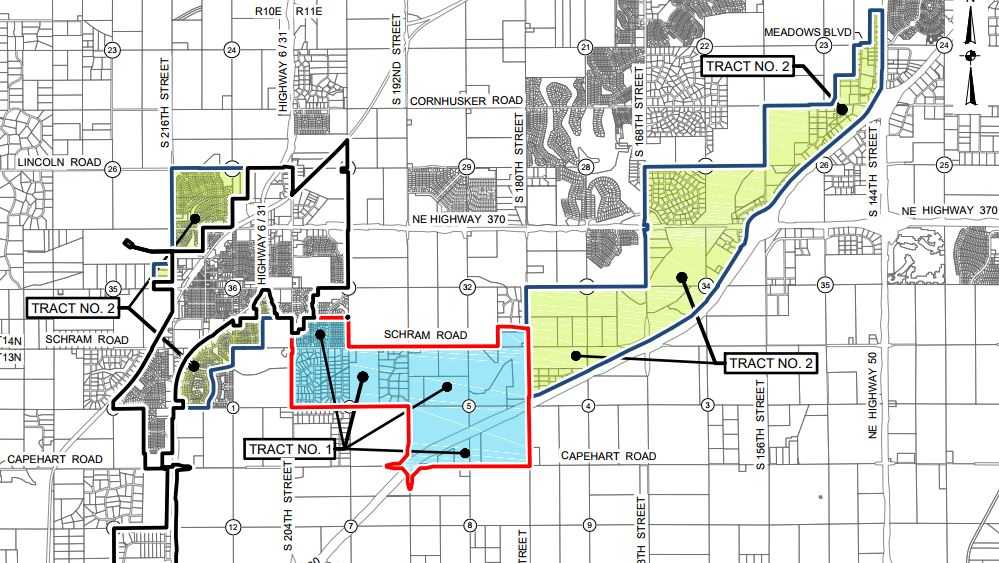Can Trump's Tariffs Replace Income Taxes? 4 Key Complications

Table of Contents
The Problem of Revenue Generation – Tariffs vs. Income Taxes
Income tax provides a broad-based revenue stream for governments, funding essential public services. Tariffs, on the other hand, are a far more limited source of revenue, generating income only on imported goods. This fundamental difference highlights a key problem with replacing income taxes with tariffs: the sheer scale of revenue generation.
- Limited Revenue Base: Tariffs only generate revenue when goods cross international borders. This significantly restricts the potential tax base compared to income tax, which applies to a vastly wider range of economic activities, including wages, salaries, investments, and business profits.
- Insufficient Revenue: To match the revenue generated by the current income tax system, tariff rates would need to be impossibly high, potentially crippling international trade and triggering a severe economic downturn. This highlights the fundamental difference between the broad tax base of income taxes and the narrow base of tariff revenue.
- Complex Administration: The administration of tariffs is complex, involving customs inspections, valuation disputes, and enforcement challenges. This administrative burden significantly reduces the efficiency of tariff revenue collection, unlike the relatively streamlined system of income tax collection.
- Volatility of Tariff Revenue: Tariff revenue is highly volatile and dependent on global trade flows. Fluctuations in import volumes directly impact revenue collection, creating budgetary instability. This contrasts sharply with the more predictable and stable revenue stream provided by income taxes. This instability in tariff revenue generation makes it an unreliable foundation for a national budget.
Keyword Optimization: tariff revenue, income tax revenue, tax base, revenue generation, tax policy, revenue collection, budgetary stability, tariff rates
Distributional Inequity: Who Bears the Burden?
Replacing income taxes with tariffs would create significant distributional inequities. While income tax is often structured progressively, meaning higher earners pay a larger percentage of their income in taxes, tariffs are inherently regressive.
- Increased Cost of Goods: Tariffs directly increase the cost of imported goods for consumers. This increased cost of living disproportionately affects low and middle-income earners, who spend a larger percentage of their income on essential goods, many of which are imported.
- Regressive Impact: This regressive effect of tariffs directly contradicts the progressive nature of income tax systems designed to redistribute wealth. The burden of tariff-based taxation falls heaviest on those least able to afford it. This is a key reason why replacing progressive income tax with tariffs is socially inequitable.
- Economic Inequality: The increased cost of living caused by tariffs would exacerbate existing economic inequality, leaving low-income households worse off. Any perceived benefits of lower income taxes would likely be dwarfed by the increased cost of essential goods.
- Social Unrest: This potential for increased economic disparity could lead to significant social unrest and political instability. A fair and equitable tax system is crucial for social cohesion and economic stability.
Keyword Optimization: tax burden, income inequality, regressive tax, distributional effects, economic impact of tariffs, cost of living, social equity, economic disparity
The Risk of Retaliation and Trade Wars
Imposing high tariffs to replace income tax revenue would almost certainly provoke retaliatory tariffs from other countries. This could trigger a damaging trade war with significant negative consequences for the domestic economy.
- Retaliation and Reduced Exports: Retaliatory tariffs would increase the cost of exporting goods, reducing the competitiveness of domestic businesses in global markets and harming export-oriented industries.
- Supply Chain Disruptions: Trade wars disrupt global supply chains, leading to shortages of essential goods, increased production costs, and reduced economic output.
- Job Losses and Economic Recession: The combined effects of reduced exports, higher import costs, and supply chain disruptions could lead to significant job losses and a potential economic recession.
- International Relations: Such protectionist policies would severely damage international relations and undermine global economic cooperation. This is a critical factor that must be weighed when considering such a drastic policy shift.
Keyword Optimization: trade war, retaliatory tariffs, international trade, protectionism, global supply chains, economic recession, export-oriented industries, international relations
Legal and Constitutional Challenges
Replacing income taxes with tariffs raises significant legal and constitutional questions in many countries, including the United States.
- Constitutional Constraints: The constitutionality of relying solely on tariffs for government revenue is questionable, depending on the specific legal framework of each country. Many nations have established legal structures that support income tax systems as the primary revenue mechanism.
- Legislative Hurdles: Overhauling the legal framework to allow for such a radical change would require monumental legislative effort and overcome significant political opposition. Such a sweeping policy change would require overwhelming political support and likely years of debate and legislation.
- Administrative Challenges: The shift would be incredibly complex to implement, potentially leading to significant administrative chaos and economic disruption during the transition. This is a factor that must be accounted for when weighing such a huge shift in policy.
- Public Acceptance: The public might not be receptive to such a drastic change, which could affect political stability and hinder successful policy implementation.
Keyword Optimization: constitutional law, tax law, legal challenges, policy implementation, political feasibility, legislative hurdles, administrative challenges, public acceptance
Conclusion
Replacing income taxes with tariffs is a highly complex and problematic proposition. The revenue generation challenges, distributional inequities, risks of trade wars, and legal hurdles render it an unrealistic and potentially devastating policy. While the idea of simplifying the tax system is appealing, a well-structured income tax system remains the most efficient and equitable way to fund government operations. Understanding the complexities involved in such a dramatic shift is crucial for informed policy discussions. Therefore, more thought needs to be given to improving existing income tax policies rather than exploring the highly improbable option of replacing them with tariffs. To learn more about the limitations of tariff-based revenue systems, explore the complexities of Trump's tariffs and their effect on the economy.

Featured Posts
-
 Pos Oi Ypologistes Apo Ines T Ha Allaksoyn Ton Tropo Poy Frontizoyme Tin Ygeia Mas
Apr 30, 2025
Pos Oi Ypologistes Apo Ines T Ha Allaksoyn Ton Tropo Poy Frontizoyme Tin Ygeia Mas
Apr 30, 2025 -
 Eurovision 2025 Who Are The Frontrunners
Apr 30, 2025
Eurovision 2025 Who Are The Frontrunners
Apr 30, 2025 -
 Innocenza Di Becciu L Appello Inizia Il 22 Settembre
Apr 30, 2025
Innocenza Di Becciu L Appello Inizia Il 22 Settembre
Apr 30, 2025 -
 Legislators Voice Reservations About Gretnas Proposed Mega Project
Apr 30, 2025
Legislators Voice Reservations About Gretnas Proposed Mega Project
Apr 30, 2025 -
 Lars Klingbeils Commitment To Animal Welfare Celebrated
Apr 30, 2025
Lars Klingbeils Commitment To Animal Welfare Celebrated
Apr 30, 2025
Latest Posts
-
 Trtyb Alhdafyn Fy Aldwry Alinjlyzy Haland Ywasl Talqh
May 01, 2025
Trtyb Alhdafyn Fy Aldwry Alinjlyzy Haland Ywasl Talqh
May 01, 2025 -
 Ahdth Trtyb Hdafy Albrymyrlyj Bed Hdf Haland Fy Shbak Twtnham
May 01, 2025
Ahdth Trtyb Hdafy Albrymyrlyj Bed Hdf Haland Fy Shbak Twtnham
May 01, 2025 -
 Haland Ytsdr Trtyb Hdafy Aldwry Alinjlyzy Bed Mbarath Dd Twtnham
May 01, 2025
Haland Ytsdr Trtyb Hdafy Aldwry Alinjlyzy Bed Mbarath Dd Twtnham
May 01, 2025 -
 Trtyb Hdafy Aldwry Alinjlyzy Almmtaz Bed Hdf Haland Alywm
May 01, 2025
Trtyb Hdafy Aldwry Alinjlyzy Almmtaz Bed Hdf Haland Alywm
May 01, 2025 -
 Ia Da Meta Aplicativo Proprio Para Competir Com O Chat Gpt
May 01, 2025
Ia Da Meta Aplicativo Proprio Para Competir Com O Chat Gpt
May 01, 2025
